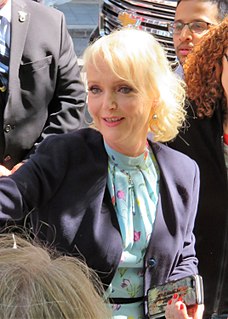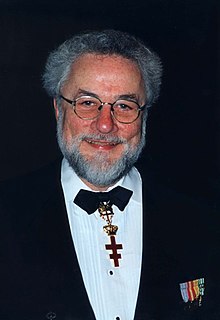A Quote by Ludwig von Mises
The essence of democracy is not that everyone makes and administers laws but that lawgivers and rulers should be dependent on the people's will in such a way that they may be peaceably changed if conflict occurs.
Related Quotes
When we look at the matter from another point of view, great caution would seem to be required. For the habit of lightly changing the laws is an evil, and, when the advantage is small, some errors both of lawgivers and rulers had better be left; the citizen will not gain so much by making the change as he will lose by the habit of disobedience.
The procedure we are pursuing is that of true democracy. Semi-democracy accepts the dictatorship of a majority in establishing its arbitrary, ergo, unnatural, laws. True democracy discovers by patient experiment and unanimous acknowledgement what the laws of nature or universe may be for the physical support and metaphysical satisfaction of the human intellect's function in universe.
Many people say that we have sufficient laws in our country, just that they are not implemented properly. I completely disagree with them. I have studied many of the laws very carefully. We are still being governed by the same colonial laws which existed in British times. They have not been changed. Many of these laws need to be changed.
The capitalistic social order, therefore, is an economic democracy in the strictest sense of the word. In the last analysis, all decisions are dependent on the will of the people as consumers. Thus, whenever there is a conflict between the consumers' views and those of the business managers, market pressures assure that the views of the consumers win out eventually.
How odd that Americans, and not just their presidents, have come to think of their Constitution as something separable from the government it's supposed to constitute. In theory, it should be as binding on rulers as the laws of physics are on engineers who design bridges; in practice, its axioms have become mere options. Of course engineers don't have to take oaths to respect the law of gravity; reality gives them no choice. Politics, as we see, makes all human laws optional for politicians.
I do not wish to be misunderstood upon this subject of slavery in this country. I suppose it may long exist, and perhaps the best way for it to come to an end peaceably is for it to exist for a length of time. But I say that the spread and strengthening and perpetuation of it is an entirely different proposition. There we should in every way resist it as a wrong, treating it as a wrong, with the fixed idea that it must and will come to an end.
Even when laws have been written down, they ought not always to remain unaltered. As in other sciences, so in politics, it is impossible that all things should be precisely set down in writing; for enactments must be universal, but actions are concerned with particulars. Hence we infer that sometimes and in certain cases laws may be changed.
If the youth is content to abandon his previous associates and to throw in his lot whole-heartedly with the rulers, he may, after suitable tests, be promoted, but if he shows any regrettable solidarity with his previous associates, the rulers will reluctantly conclude that there is nothing to be done with him except to send him to the lethal chamber before his ill-disciplined intelligence has had time to spread revolt. This will be a painful duty to the rulers, but I think they will not shrink from performing it.
Politics is the practical exercise of the art of self-government, and somebody must attend to it if we are to have self-government; somebody must study it, and learn the art, and exercise patience and sympathy and skill to bring the multitude of opinions and wishes of self-governing people into such order that some prevailing opinion may be expressed and peaceably accepted. Otherwise, confusion will result either in dictatorship or anarchy. The principal ground of reproach against any American citizen should be that he is not a politician. Everyone ought to be, as Lincoln was.



































